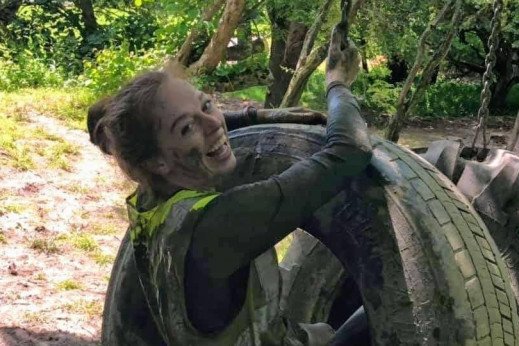Eating disorders affect people of all ages, backgrounds, and genders. But often people have narrow expectations about what someone with an eating disorder looks like, and this can lead to additional barriers to support and treatment for those who fall outside those expectations.
Matt trained as a Beat Ambassador last year. He hopes that his involvement in the Ambassador scheme will break down the stigma men with eating disorder face, and by being open with people about his own recovery, he hopes others will feel able to be curious, and ask him the questions they want answering.
My spiral into an eating disorder began, you could say, as a cliché. I’d broken up with a girlfriend, and physically started to feel inadequate. I was at university, and while I never actively decided I was going to lose weight, not feeding myself properly, coupled with late night partying fuelled by drugs and alcohol meant weight started to fall away. And as my weight fell, the number of compliments I received about my appearance rose. I was trapped in a cycle of over-exercising and undereating and I didn’t know how to maintain my weight in a healthy balanced way, but I knew I couldn’t ‘let myself go again’ – no one would value me anymore.
My degree in animation was supposed to propel me where I wanted to be, but my eating disorder robbed me all of my creativity and energy. I ended up back at home in a job I hated, brutally miserable – exactly what I’d spent ten thousand pounds and three years trying to get away from.
I considered taking my own life.
When a close friend died, I decided I had to make a change. But treatment wasn’t easy with an hour and a half’s drive or more each way to get to a therapist who could cope with what I was going through. I was borrowing my mum’s car, barely able to afford the petrol and so tired I once fell asleep at the wheel on the way home. No one knew I was suffering and I was keen to keep it that way.
To this day, I’ve still never met a male with an eating disorder – or not one who has opened up to me about it. Everything I came into contact during my recovery was female orientated: the examples people told me about, other sufferers, my psychologists. And this was the reason I wanted to get involved with Beat – this has got to change. If you see something you don’t identify with, your eating disorder is very quick to tell you to dismiss it – ‘that’s not you’, it says.
As a Beat Ambassador, I’ve reflected back on my experiences. It was a part of my life that felt pretty ‘hazy’, but strangely, going into a chronology of events has helped me to find some meaning and order. It feels a more coherent part of my history now, rather than a part of my life that made no sense. I hope my work with Beat will make a difference to men like me in the future.
Contributed by Matthew
What happens when you start to feed your brain again?
5 May 2021You have to learn how to live again and, like with any lessons, you often have to fail to learn the best way or the right way...
"Things can improve, even when it feels hopeless"
29 April 2021In the past I’ve wanted to hide the eating disorders that are part of my history, but I want to shout from the rooftops: I'm proud of how far I had come!
"This year has taught me to be kinder to myself"
21 December 2020What a year 2020 has been in general for everyone – it was a year no one ever could have imagined, from panic buying, toilet roll shortages, lockdowns and restrictions. Yet for so many, including me, the battle against an eating disorder continued.


